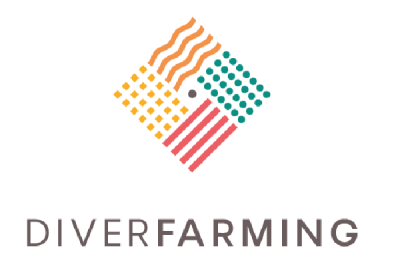The broccoli crop associated with beans reduces fertiliser use by 30%
Increasing the profits of the agricultural community requires a reduction in the external inputs when growing, and therefore the health of the soil where the crop is grown is an essential aspect. If the soil contains enough organic material and the necessary nutrients so that the crops grow and the harvest is productive, then the costs of external resources such as fertilisers will be better.
Under this premise, the team of the European Diverfarming project which manages the experimental plot ‘AsociaHortus’ in Cartagena, financed by the Ministerio de Ciencia e Innovación, has achieved a 30% reduction in fertiliser use by introducing beans into broccoli monocropping. As a result of the association of crops they have reduced the application of fertilisers and have improved the soil quality in terms of nutrients and organic matter, maintaining the same production of broccoli and contributing an extra harvest of beans.
Diverfarming seeks a change in paradigm in European agriculture which, from the combination of crop diversification and sustainable management practices, will give economic security to the agricultural community and will benefit the environment, having an influence on climate change. This experimental field, located in Murcia and headed up by the researcher Virginia Sánchez Navarro at the Universidad Politécnica de Cartagena, joins the other 25 experimental plots in six European countries in which European crop diversification is being trialled.
Diversifications of horticultural products with legumes are being studied in this field with reductions in fertilisers. Monocropping of the vegetable is compared with the mixture of the vegetable with legumes or intercropping alleys of the vegetable and legumes. The results have been positive in both the summer and the winter cycles. In the summer, the combination of melon with cowpea increased the melon production by between 34 and 70%, with a 30% reduction in fertiliser and an increase in organic matter and soil nutrients. Now, similar results have been found with the broccoli production, which although it remains stable in comparison with monocropping, has achieved a 30% reduction in fertilisers in the associated crops, as well as providing an extra crop of cowpea and improving soil health.
With these results, the efficacy of the association of horticultural products with legumes is clear, both at the level of production and reducing costs, as well as in the battle against soil degradation and looking after its health
Diverfarming is a project financed by the Horizon 2020 Programme of the European Commission, within the challenge of “Food Security, Sustainable Agriculture and Forestry, Marine, Maritime and Inland Water Research and the Bioeconomy”, which counts on the participation of the Universities of Cartagena and Córdoba (Spain), Tuscia (Italy), Exeter and Portsmouth (United Kingdom), Wageningen (Netherlands), Trier (Germany), Pecs (Hungary) and ETH Zurich (Switzerland), the research centres Consiglio per la ricerca in agricoltura e l'analisi dell'economia agraria (Italy), the Consejo Superior de Investigaciones Científicas (Spain) and the Natural Resources Institute LUKE (Finland), the agrarian organisation ASAJA, and the companies Casalasco and Barilla (Italy), Arento, LogísticaDFM and Industrias David (Spain), Nieuw Bromo Van Tilburg and Ekoboerdeij de Lingehof (Netherlands), Weingut Dr. Frey (Germany), Nedel-Market KFT and Gere (Hungary) and Paavolan Kotijuustola and Polven Juustola (Finland).

